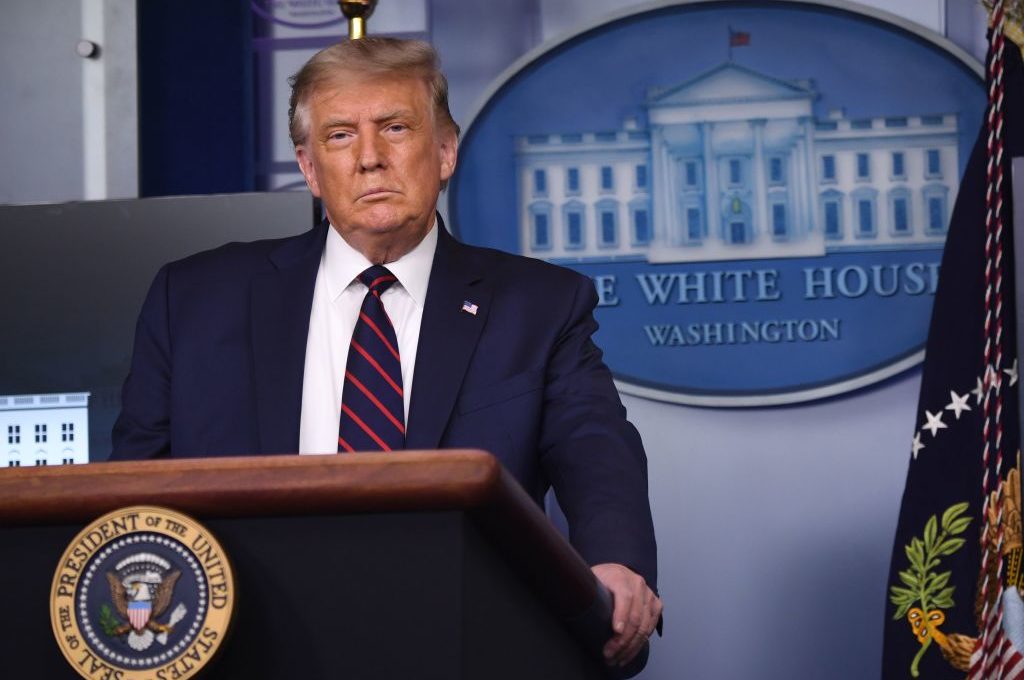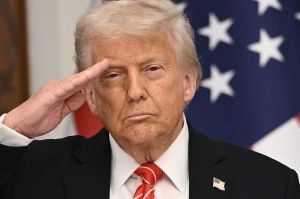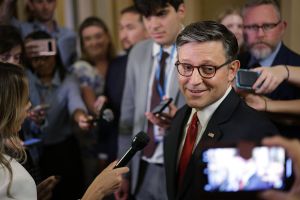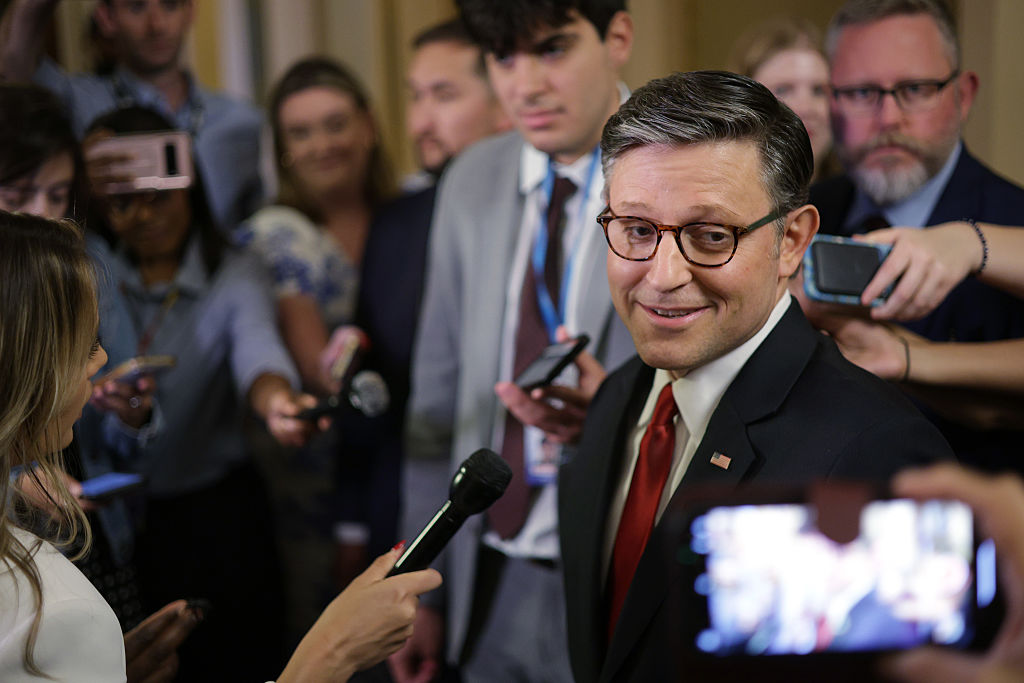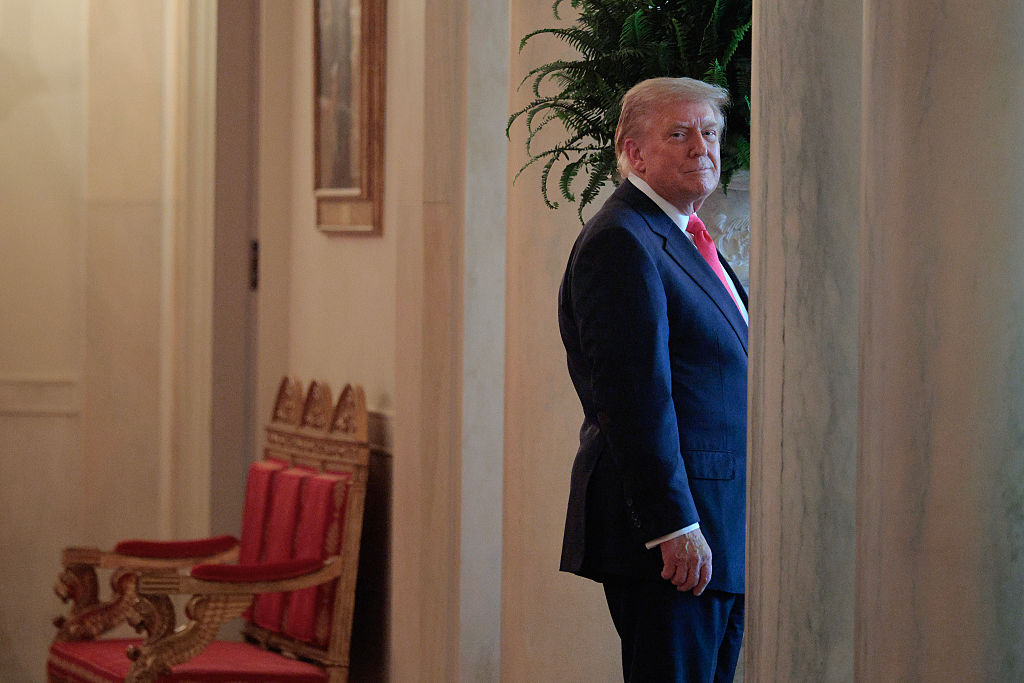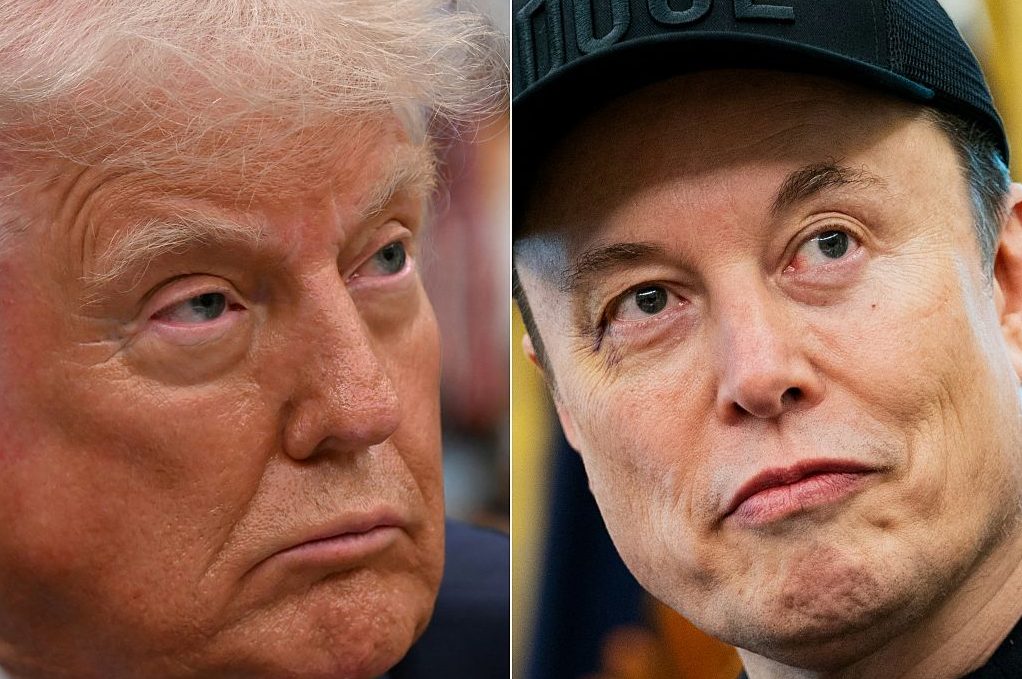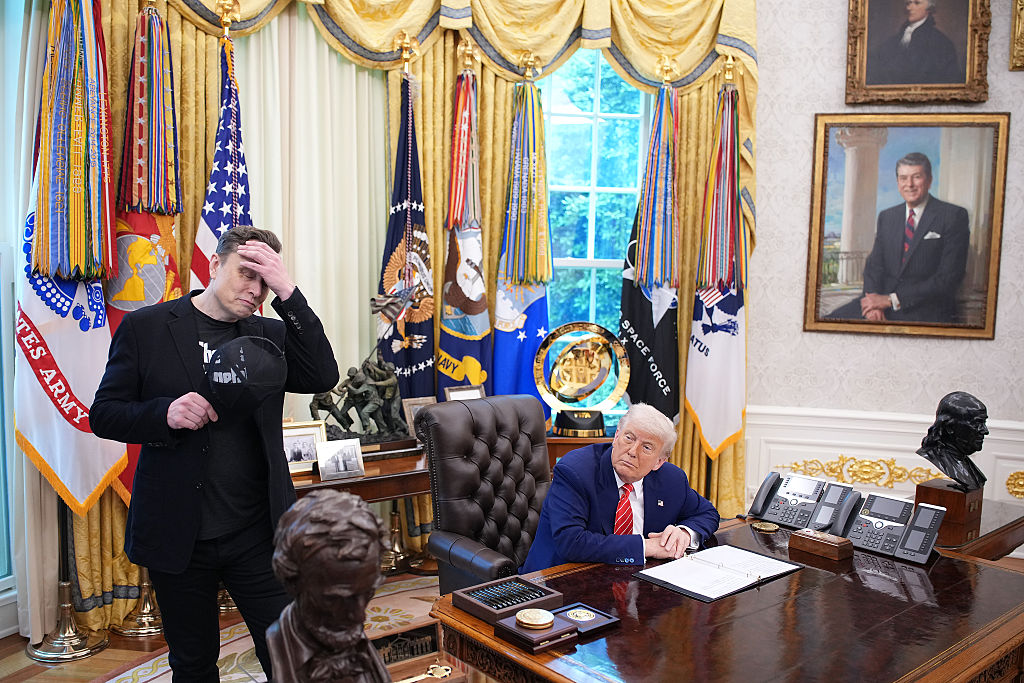No matter what the pundits say, no matter how the polls look, November’s presidential election is very much up for grabs. In a year as chaotic as 2020, nothing is certain.
In another sense, however, the election’s outcome is predetermined: even if he wins another four-year term, Donald Trump’s political moment has all but vanished. For the right, the time has already come to look beyond Trump. The last US issue of The Spectator asked what a Biden presidency might mean. This one asks what might happen to the political right once Trump leaves the White House — be that in 2021 or 2025.
Donald Trump may be a real estate tycoon, yet his real skill is in marketing. As a marketing genius, he entered the 2016 political arena after spotting an underserved demographic: patriotic Americans upset about their country’s gradual decay through outsourcing, mass immigration and foreign wars. Despite gross personal shortcomings, a shoddy campaign apparatus, the opposition of the entire GOP establishment, dozens of unforced political errors and the Access Hollywood tape, Trump rode this demographic to the presidency. To borrow from an old economics joke, Trump found 304 electoral votes lying on the sidewalk which nobody had thought to pick up before him.
Ordinarily, a victory such as Trump’s would have been followed by a larger realignment. FDR forged the New Deal coalition, then bequeathed it to a half-century’s worth of Democrats. Reagan did much the same, allying Wall Street free-marketers with Catholic and evangelical social conservatives. In January 2017, a burgeoning populist conservative movement had reason to believe they were witnessing the dawn of a new political order.
But Trump’s political savvy was joined to an ideological commitment as ephemeral as Arnold Schwarzenegger’s run on The Apprentice. At his convention speech four years ago, Donald Trump vowed to be the ‘law and order candidate’. Now, in 2020, he boasts about the First Step Act, which released thousands of criminals from prison, and attacks Joe Biden for his 1994 crime bill. In that same 2016 speech, Candidate Trump declared that big business and big donors had ‘rigged our political and economic system for their exclusive benefit’. President Trump, however, has imitated his Republican predecessors, slashing the corporate tax rate by 14 percent while issuing endless tweets that vaunt the performance of the stock market.
Lacking a prebuilt political base or any significant understanding of Washington’s mechanics, the man who vowed to ‘drain the swamp’ has appointed a mix of cronies, establishment figures and shiny objects that caught his eye to preside over the executive branch. Instead of charting his own course, the President seems most influenced by whoever last spoke to him. That has allowed his son-in-law Jared Kushner to hoard immense power.
From the moment Trump took the oath of office, then, his presidency has not been about ‘Trumpism’. It has been about Donald Trump. Every day of the Trump presidency is like a new episode of a reality TV show. The President’s supporters are perpetually frustrated. One day, he seems to be turning the corner, finally taking action to curb immigration or disentangle America from Afghanistan. The next day, he’s back to picking fights with cable hosts. Bold promises on Twitter are later walked back by embarrassed aides. Political energy is dissipated on causes that nobody voted for in 2016, such as tax cuts for Apple or liberating drug dealers from prison. The President’s online tirades suggest that, in his mind, feuds with TV presenters are at least as important as trade wars with China, if not more so.
A more ideologically energetic and consistent Trump would have forced every GOP member to take a position on his 2016 platform: support Trump and his realignment, or oppose it and go into rebellion. Instead, the President’s slapdash approach to governance has allowed almost anyone to claim the ‘Trumpist’ banner, for at least a moment: Steve Bannon and John Bolton, Jeff Sessions and Nikki Haley, Lindsey Graham and Josh Hawley, Tucker Carlson and Ivanka Trump.
The vacuum of leadership at the top means that instead of ending the GOP’s ideological civil war, Trump merely paused it. As Sohrab Ahmari writes, most of the right has yet to make its reckoning with what Trump means for conservatives and Republicans. That brings us to now. In spite of everything, Trump may eke out an electoral victory this November. Notwithstanding Roger Kimball’s optimistic fantasy, it is hard to believe that the President’s second term might be different from the first: inconsistent, mercurial, rudderless. For as long as Trump and his family remain the fulcrum of American politics, the GOP will be effectively without a leader. Meanwhile, the war for the future of conservatism after Trump has already begun. The factions are fighting in print, online, on cable TV and in the West Wing.
Nationalist or populist conservatives felt liberated by the thaw of the Trump moment, and felt themselves ascendant in the Republican party. Now, after that brief flourishing, the party’s more established libertarian wing would like to turn back the clock. The establishment will struggle to win elections until it stops despising the voters who dared to ignore it by elevating Trump. For the populists, the challenge will be to produce candidates who have the same appeal as Trump, but without the baggage. Can they win elections without their victories seeming a fluke, and transform the ad-hoc electoral coalition of 2016 into a durable movement? What should happen after Trump? There may be no right answer.
This article is in The Spectator’s September 2020 US edition.



